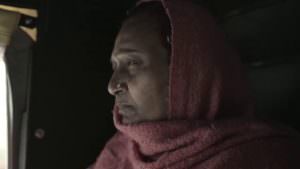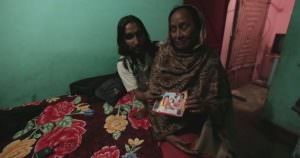‘1984, When The Sun Didn’t Rise (Jis Din Suraj Ugya Nahi)’ is the documentary filmmaker Teena Kaur Pasricha’s personal and collective journey to reminiscence and recount the Anti-Sikh massacre of 1984. Although Teena grew up in Ajmer, she heard from her mother the stories of horror and resentment that centered around the scarred lives of many from the Sikh community. One of them was her own uncle’s, who was dragged out of a moving train and had to suffer from a loss of identity.
https://www.youtube.com/watch?v=zFJNfkkImO8
As the documentary recalls the violence perpetrated on Sikhs in the country, Teena focuses on the lives of a few individual women from Tilak Vihar Delhi, also known as the Widows Colony. For Teena, it was a quest to understand how these women dealt with the trauma of losing their loved ones. “I wanted to know their journey because in a way I got affected and I had a personal loss which made me relate to these women.”
On 31st October 1984, when Prime Minister Indira Gandhi was assassinated by her Sikh bodyguards, it triggered a series of pogroms by anti-Sikh mobs mostly led by Congress Party members against the Sikh community. The massacre lasted for four days as Sikh men were burnt alive and women raped. ‘1984, When The Sun Didn’t Rise’ investigates the lives of women that were forever transformed by the event. “Not only did these women have to negotiate with their memories but they had to earn their livelihoods and take care of their children”, explains Teena as she brings the historical narrative to the forefront.

Image Credit: YouTube
‘1984, When The Sun Didn’t Rise’ is a dialogue between the filmmaker and three women, Kuldeep Kaur, Harbans Kaur and Meera Kaur namely, as we witness the ignorant and decrepit living conditions which these women were compensated with. Besides them, the director also includes the expositions of a legal expert (H.S. Phoolka) and the accused politician Jagdish Tytler on the matter for a holistic approach.
The film is a catharsis for these women and the filmmaker. It appears that Harbans Kaur who had buried her pain for all these years comes in touch with reality as she is confronted with her past. “After talking to me, she realized that maybe I am living in an illusion”, states Teena. Neither Harbans nor Meera Kaur had ever seen or received the bodies of their husbands that made it hard for them to accept their deaths. In fact, Harbans mentions that for years, she had searched for her husband.
The filmmaker has been much appreciated for employing an ethnographic approach to the film as she immerses herself into the emotions of these women, “It is about the shared memory, the wounds that we don’t pay attention to. I felt like I wasn’t just a committed listener but I was one of them. And I am still one of them listening to their stories.”

Image Credit: Scroll
With the emergence of agonising memories, ‘1984, When The Sun Didn’t Rise’ also delves into the problems of financial depravity that challenges the community of survivors. One of the biggest predicament of which is drug addiction among the youth. As the filmmaker interviews Mohan, Meera Kaur’s son, he is upfront about taking drugs. We are told that many kids like him are subjected to drug abuse and at times resort to stealing in order to get their fill. The film asks us to question our neglect towards these people and the government’s failure to look after them and support their livelihood.
Kuldeep Kaur is one woman who sought and won justice for her husband by putting the culprit behind bars. Perhaps, that is what these women need to move on with their lives, some sort of recognition and justice as the accused still roam about freely. “Meera aunty never saw her husband or received his dead body, so she is also hoping that if someday these people can be convicted or justice can be served by putting this thing into the media or bringing it to the public eye might be of some relief,” the director tells us.

Image Credit: Scroll
However, the key message of the film is a plea for tolerance respecting everyone’s identity. “As we continue to glorify ourselves, our identity and our community, our ideologies are becoming narrower. Therefore, we need to open our hearts especially to those who are different from us”. Teena wishes that India implements a law for genocide and declares 1984 as ‘genocide’ so that something like this never happens again. Genocide is a term that is still not recognized in our country, but one needs to understand that violence that is directed towards a community or a group with the intent of destroying that group’s existence is unique to ‘genocide’ and is a crime against humanity.
‘1984, When the Sun didn’t Rise’ is Teena Kaur’s debut independent documentary for which she received the ‘Best Docu Feature by an Emerging Filmmaker’ award in DC Asia Pacific Film Festival in 2017. She is also the recipient of Busan International Film Festival’s prestigious fund called Asian Network and Documentary Fund or ‘AND’ Fund (2015). The film was also selected for Work in Progress Lab of ‘DOC WOK’ of Doc Leipzig International Festival for Documentary and Animated Films, Germany in 2014.
Also read: Sita’s Family, A Documentary On Public and Private Struggles For Independence
Featured Image Credit: Film Festivals
About the author(s)
An idealist who feeds on compassion, travel and good company. A film enthusiast, a poet, writer, activist and feminist.




